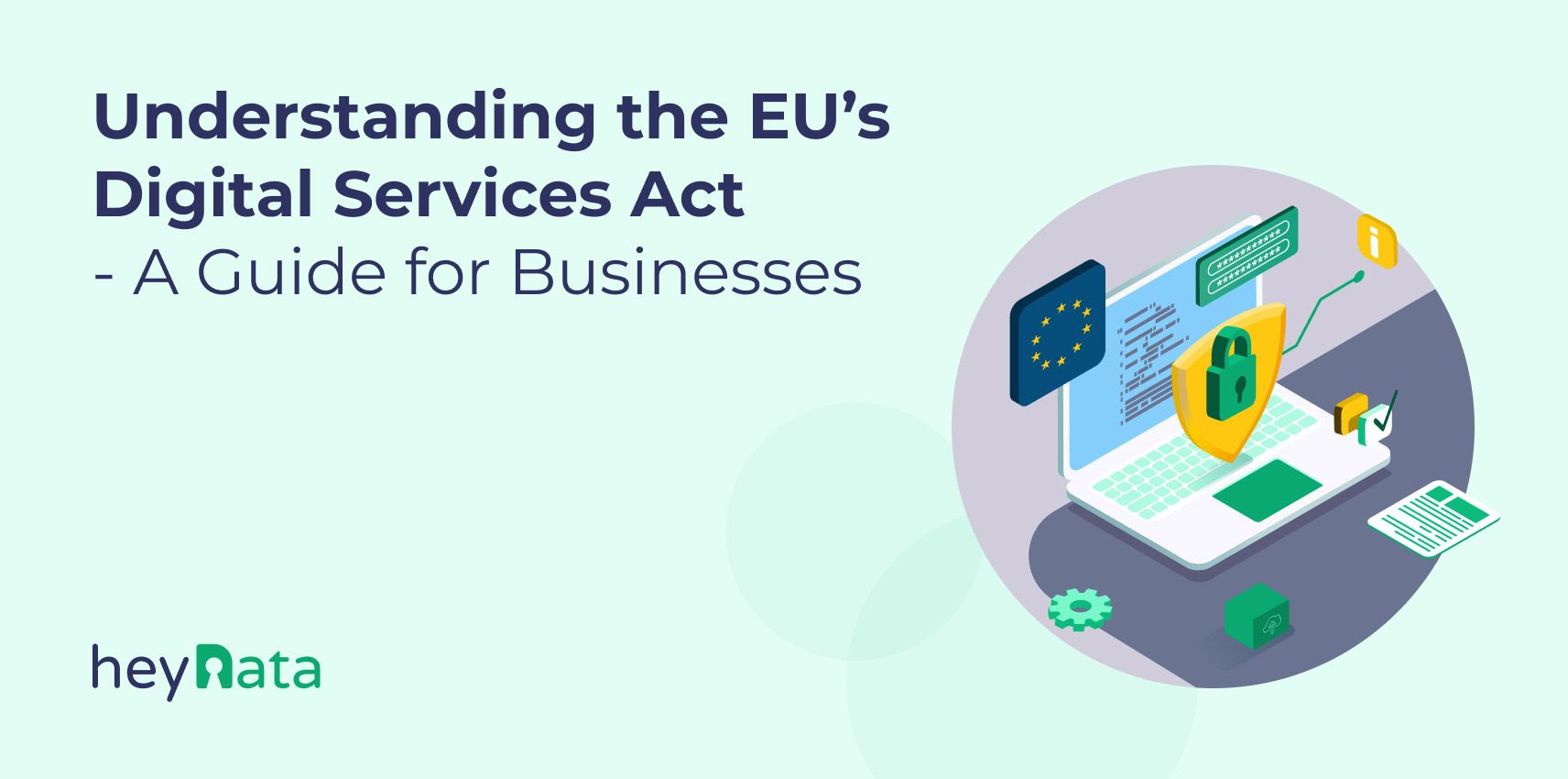
Understanding the EU's Digital Services Act: A Guide for Businesses

The digital landscape is constantly evolving, and with it, the regulatory framework designed to ensure a safe and transparent online environment. One of the most significant legislative developments in recent years is the European Union's Digital Services Act (DSA). This article aims to provide a comprehensive overview of the DSA, highlighting which companies fall under its scope, the key obligations of these companies, and the potential consequences of non-compliance.
Table of Contents:
What is the EU's Digital Services Act?
The Digital Services Act (DSA) is a legislative framework proposed by the European Commission aimed at creating a safer digital space where the fundamental rights of users are protected and to establish a level playing field for businesses operating online. Adopted in December 2020, the DSA represents a significant overhaul of the existing e-Commerce Directive, which has been in place since 2000.
The primary objectives of the DSA are to increase transparency and accountability of online platforms, combat illegal content, protect users' fundamental rights online, and foster innovation and competition within the digital market. By doing so, the DSA seeks to modernize the legal framework for digital services and address the challenges posed by the rapid growth of the digital economy.
Which Companies Fall Under the DSA?
The DSA applies to a broad range of digital services that operate within the EU, regardless of their place of establishment. These services are categorized into four main groups:
- Intermediary Services: These include network infrastructure providers such as internet access providers and domain name registrars.
- Hosting Services: This category encompasses services that store information provided by users, including cloud storage and web hosting services.
- Online Platforms: Online platforms facilitate user interaction and include social media platforms, marketplaces, and app stores.
- Very Large Online Platforms (VLOPs): These are online platforms with a significant reach, specifically those with more than 45 million monthly active users in the EU.
The obligations under the DSA vary depending on the type and size of the service, with more stringent requirements imposed on larger platforms due to their greater impact on society and the economy.
Key Obligations for Companies
The DSA imposes several obligations on companies providing digital services, aimed at ensuring transparency, accountability, and user protection. Key obligations include:
- Transparency Reporting: Digital service providers must publish annual transparency reports detailing their content moderation activities, including the number of illegal content removals and actions taken against misleading advertisements.
- Illegal Content Removal: Companies must establish mechanisms for users to report illegal content, and they are required to act promptly to remove or disable access to such content. This also includes providing clear reasons for content removal decisions to the affected users.
- User Redress Mechanisms: Platforms must offer users accessible complaint-handling mechanisms to contest content removal or account suspension decisions. Additionally, platforms must cooperate with trusted flaggers, who can identify illegal content more efficiently.
- Risk Assessment and Mitigation: Extensive online platforms are required to conduct risk assessments related to the dissemination of illegal content, impacts on fundamental rights, and potential societal harm. They must implement measures to mitigate these risks, which may include changes to their algorithms or terms of service.
- Advertising Transparency: Online platforms must ensure that users can easily identify advertisements and understand why they are being targeted. This includes providing information about the advertiser and the parameters used for targeting specific ads.
- Data Access for Researchers: To promote transparency and accountability, VLOPs must provide access to their data to vetted researchers, enabling them to study systemic risks and the impacts of platform policies.
Possible Consequences of Non-Compliance
Non-compliance with the DSA can result in severe consequences for companies, both financially and reputationally. The European Commission has the authority to enforce the DSA and impose sanctions on companies that fail to meet their obligations. Key consequences include:
- Fines: Companies can face fines of up to 6% of their global annual turnover. For very large online platforms, this can translate into billions of euros, making compliance economically imperative.
- Periodic Penalties: In addition to fines, the DSA allows for periodic penalties for continued non-compliance, incentivizing companies to address issues promptly and sustainably.
- Access Restrictions: In extreme cases of persistent non-compliance, the DSA grants authorities the power to request courts to order temporary or permanent restrictions on access to the service within the EU.
- Reputational Damage: Non-compliance can lead to significant reputational harm, as transparency reports and enforcement actions are made public. This can result in a loss of user trust, negative media coverage, and a decline in user base and market share.
- Increased Scrutiny: Companies that fail to comply with the DSA may face increased scrutiny from regulators, leading to more frequent audits and investigations, further straining resources and operational capacities.
Conclusion
The Digital Services Act represents a landmark regulation aimed at creating a safer and more transparent digital environment in the EU. Companies operating within the EU must understand their obligations under the DSA and take proactive steps to ensure compliance. By doing so, they can not only avoid substantial fines and penalties but also foster a trustworthy and user-centric digital ecosystem. As a legal consultant, it is crucial to guide your clients through this complex regulatory landscape, helping them implement the necessary measures to comply with the DSA and leverage its benefits for their business operations.


